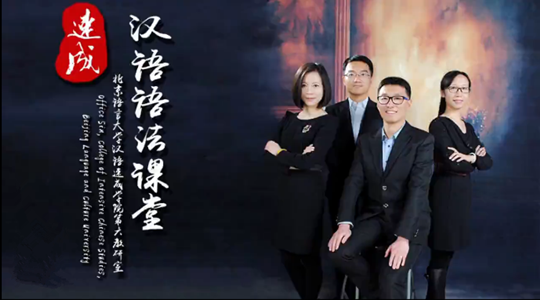
当前课程知识点:Research Methods in Tourism Studies > Week 1 How to Start a Good Research > 1.1 Research Question and Research Objectives > 1.1.1 Student interview before class
返回《Research Methods in Tourism Studies》慕课在线视频课程列表
返回《Research Methods in Tourism Studies》慕课在线视频列表
欢迎来到本课程
我是刘婷婷 是研究方法课程的首席讲师
在开课之前
我想听听学生们的声音
我希望从学生的角度
了解他们对研究方法有什么看法
他们对课程有哪些期待
你好 大卫
很高兴知道你是研究方法课程的学生之一
欢迎
非常感谢你 刘博士
我很高兴来到这里
我真的很期待网上课程
谢谢你能来参加
你能先向我们的观众简要介绍一下你自己吗
我叫大卫·西波斯 我来自匈牙利
我今年27岁 是南开大学的留学生 主修旅游管理专业
你来这里多久了
这是我在中国的第五年
我从去年开始攻读硕士学位
在此之前 我在南开大学学习了两年的语言课程
在海口的海南大学学习了一年
关于研究方法课程 你有什么想详解的吗
是的
虽然我是硕士生
但我在本科期间没有学习过研究方法
所以我对这个领域还不太熟悉
我连最基本的问题都不太了解
例如
定性研究和定量研究的主要区别是什么
我们应该怎样选择研究方法
这是一个很好的问题 大卫 但不用担心
实际上 这门课程是研究方法的一门初级课程
它主要针对那些才刚步入研究大门的学生
所以这门课主要面对那些想了解旅游领域学术研究
和想要培养研究思维的学生们
关于定性研究和定量研究之间的区别
在本课程的第二章中
我们有幸请到伯恩茅斯大学的博士
来对这个内容进行详细讲述
好的 很高兴知道这些
实际上 我已经开始写论文了
我真的需要在完成论文之前好好学习这门课
太好了 对你来说 这是注册这门课的好时机
那你现在在写论文的哪一部分了呢
现在我在做文献综述部分
实际上 我意识到这比我想象的还要难
我知道文献综述是论文的一个非常重要的部分
那么 在撰写文献综述时
我们最需要注意什么呢
我明白
事实上 很多学生也有类似的问题
他们在阅读学术文献方面举步维艰
因为对于大多数英语学术期刊来说
文献综述的结构以及论文的写作结构
与我们在日常生活中阅读的报纸、新闻文章等有很大的不同
在本课程的第一章中
我们也将介绍旅游领域中的常用数据库
包括如何进行相关信息的检索
如何使用相关信息来支持文献中的论点等
因此 在前两章中
您将了解如何在论文写作中系统地撰写研究综述
以及如何搜索相关信息
好的 这对我的论文很有帮助
谢谢您
因此 我想你可以先学习前两章的内容
这对你现在的研究很有帮助
我明白了 谢谢您
大卫 你对这个课程有什么期望吗
当然
这是一门在线课程
可能它不同于其他传统课堂
不同于你现在接触到的线下课程
对此 你有什么期待吗
我最期待的事是通过线上听到多样的模块
听到关于多个主题的不同观点
对我来说 这将是一个极好的机会
不仅可以学习新知识 而且可以扩展我的思维方式
我认为在学习的过程中
从不同的来源获取信息是非常重要的
这样我们就能对不同的学科有更全面的了解
你刚好有这个机会
因为这也是我们希望这个课程在网上推出的原因
因为通过这种方式
我们有机会邀请到世界各地的知名学者
我们有来自世界不同国家的学者
参与到这个课程中
分享他们自己的课题和研究思路
我们甚至还邀请到一些期刊的编辑
例如 我们有一位
来自《 Annals of Tourism Research》的主编 Scott McCabe教授
我们还邀请了
《Journal of Hospitality and Tourism Management》的主编
Marianna Sigala教授
他们也会在这个课程上与大家分享
虽然这是一种在线形式
但这是一个非常宝贵的机会 你可以听到不同的声音
也可以听到不同学者的观点
非常感谢你 刘博士
对此我非常兴奋 我期待着开课
谢谢你 大卫
谢谢你
我希望你能在研究方法这门在线课程中
有一个很好的学习体验
我不清楚多少人有类似大卫一样的疑惑
但我希望大家在下学期
都能从研究方法课程中找到自己的答案
本课程将系统地介绍
旅游领域研究方法的概况
它阐明了有意义的研究中会用到的概念 方法和过程
并鼓励学生自主回答问题
本课程邀请来自世界各地的著名的学者
分享实践中的研究案例和顶级期刊的发表
通过本课程的学习
我希望您能够知道
如何提出一个好的研究问题
理解不同的研究方法
进行具体的数据收集和分析
讨论未来旅游研究的趋势
并将特定的研究方法
应用到您自己的论文或咨询项目中
现在 我们开始上课吧!
-1.1 Research Question and Research Objectives
--1.1.1 Student interview before class
--1.1.2 The starting point: question
--1.1.3 What is a good research question?
--1.1.4 Ways to find a good research question
-1.2 Title Design
--Acticle: Leisure & Travel as Class Signifier: Distinction Practices of China's New Rich
--Discussion: Why do we research?
-1.3 Literature Retrieval Method and Literature Databases
--1.3.1 Common literature retrieval method
--1.3.2 Common literature search database
-1.4 Information Collection and Academic Journals in Tourism
--1.4.1 Academic journals in tourism research
--1.4.2 Literature collection methods and principles
-1.5 Literature Reading
--1.5.2 Overcoming obstacles in literature reading
--Week 1 quiz
--Discussion: What difficulties have you encountered in reading literature?
-2.1 Philosophical Bases of the Two Approaches
--2.1.1 Philosophical bases of the two approaches
-2.2 Differences between the Two Approaches
--2.2.1 Differences between the two approaches
--Article: Does tourist–host social contact reduce perceived cultural distance?
-2.3 Be Aware of Your Own Research Views
--2.3.1 Be aware of your own research views
--Discussion: How to choose research method?
-2.4 Research Example: Social Tourism
--2.4.1 What is social tourism?
--2.4.2 Established frameworks on social tourism
--2.4.3 Major research findings on social tourism
--2.4.4 Major findings of social tourism research
--2.4.5 Opportunities and challenges for social tourism
--Week 2 quiz
- 3.1 Key Procedures in Qualitative Approach
--3.1.1 Key procedures in qualitative approach
-3.2 Qualitative Data Collection and Analysis
--3.2.1 Key procedures and data collection methods in qualitative approach
--3.2.2 Data collection and analysis in qualitative approach
--3.2.3 Data analysis in qualitative approach
-3.3 Case Study and Content Analysis
--Discussion: Have you ever used a qualitative approach in your research?
-3.4 Using Coding and Themes in Qualitative Research
--3.4.1 Using coding and themes in qualitative research(1)
--3.4.2 Using coding and themes in qualitative research(2)
-3.5 Using Conceptual Framework in Qualitative Research
--3.5.1 Using conceptual framework in qualitative research(1)
--3.5.2 Using conceptual framework in qualitative research(2)
--Article: Tourist typology in social contact: an addition to existing theories
--Week 3 quiz
--Discussion: How to ensure the reliability and validity of qualitative study?
-4.1 Using Questionnaires in Quantitative Research
--4.1.1 Make an effective literature review and research method design
--4.1.2 Learn to write powerful findings and discussion
-4.2 Using Experiment in Quantitative Research
--4.2.4 Eye tracking experiment
-4.3 Using Mixed Method
--4.3.1 Sustainabble tourism development (1)
--4.3.2 Sustainabble tourism development (2)
--Article:Creating a scale for assessing socially sustainable tourism
--Week 4 Quiz
--Discussion: How to use quantitative methods to study tourists' reaction?
-5.1 Current Research Priorities
--5.1 1 A review of hospitality research
--5.1.2 Impact of information technology on hospitality and tourism research
-5.2 Multi-Level/ Multiple Sources of Date Collection
--5.2.1 Experimental design (1)
--5.2.2 Experimental design (2)
--5.2.3 Multi-level/multiple sources of data collection
-5.3 Mixed Method and Interdisciplinary Research
--5.3.2 Interdisciplinary research
--Article: The meanings of destination: a Q method approach
--Discussion: Can you talk about your understanding of research methods?
-5.4 Using Delphi Method in Research Design
--5.4.1 What is the Delphi method?
--5.4.3 Characteristics of the Delphi method
--5.4.4 Predicting the future of wine tourism
--Week 5 quiz
--Discussion: Philosophical basis of research methods
-6.1 Journal Publication
--6.1.1 How to publish in the top journals? (1)
--6.1.2 How to publish in the top journals? (2)
--6.1.3 How to publish in the top journals? (3)
--6.1.4 How to publish in the top journals? (4)
--Article: Analyzing the economic sustainability of tourism development: evidence from Hong Kong
-6.2 Academic Ethics
--6.2.2 Student interview after class
--Week 6 quiz
--Discussion: Academic publication and academic ethics
--Final quiz
